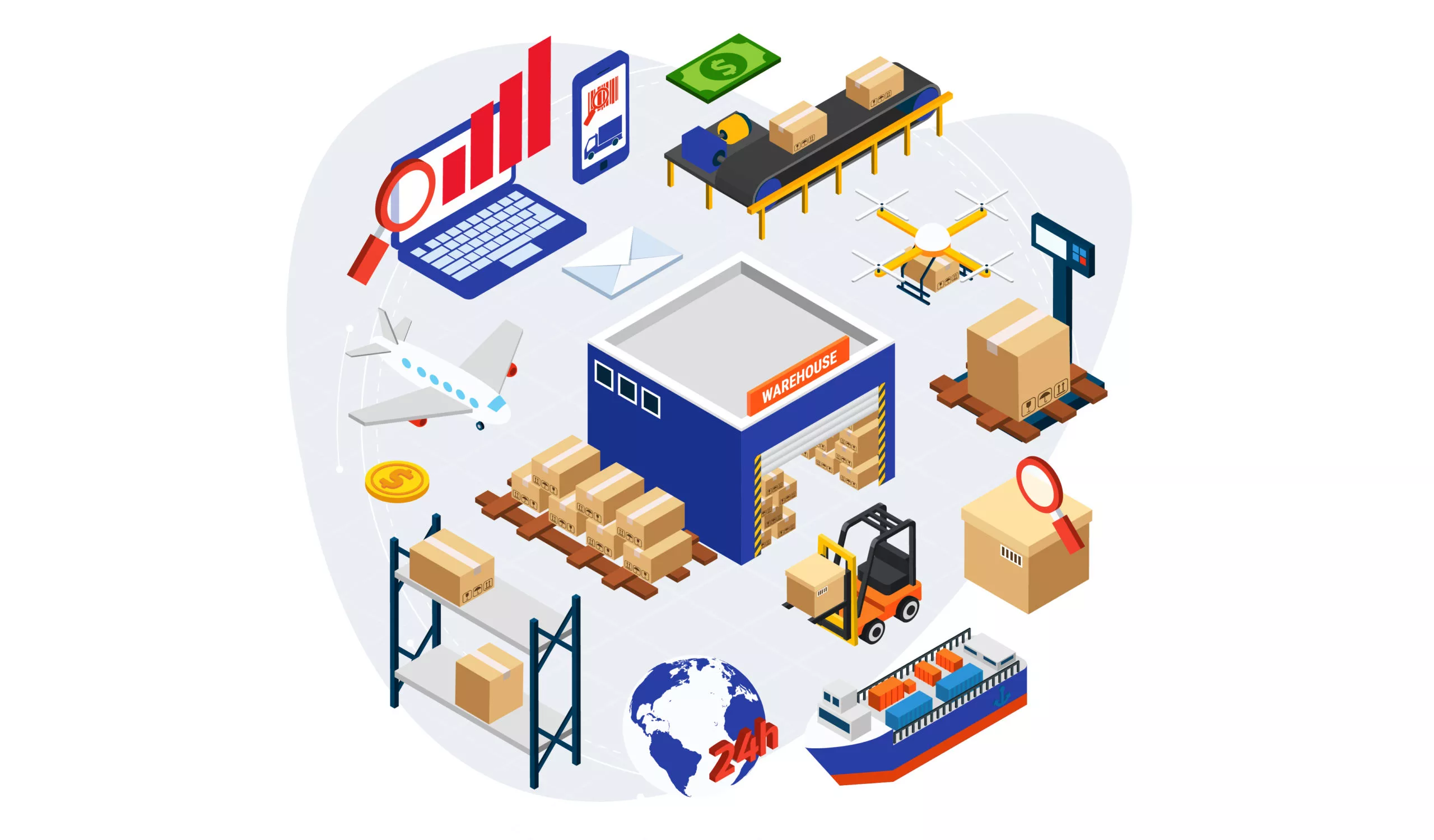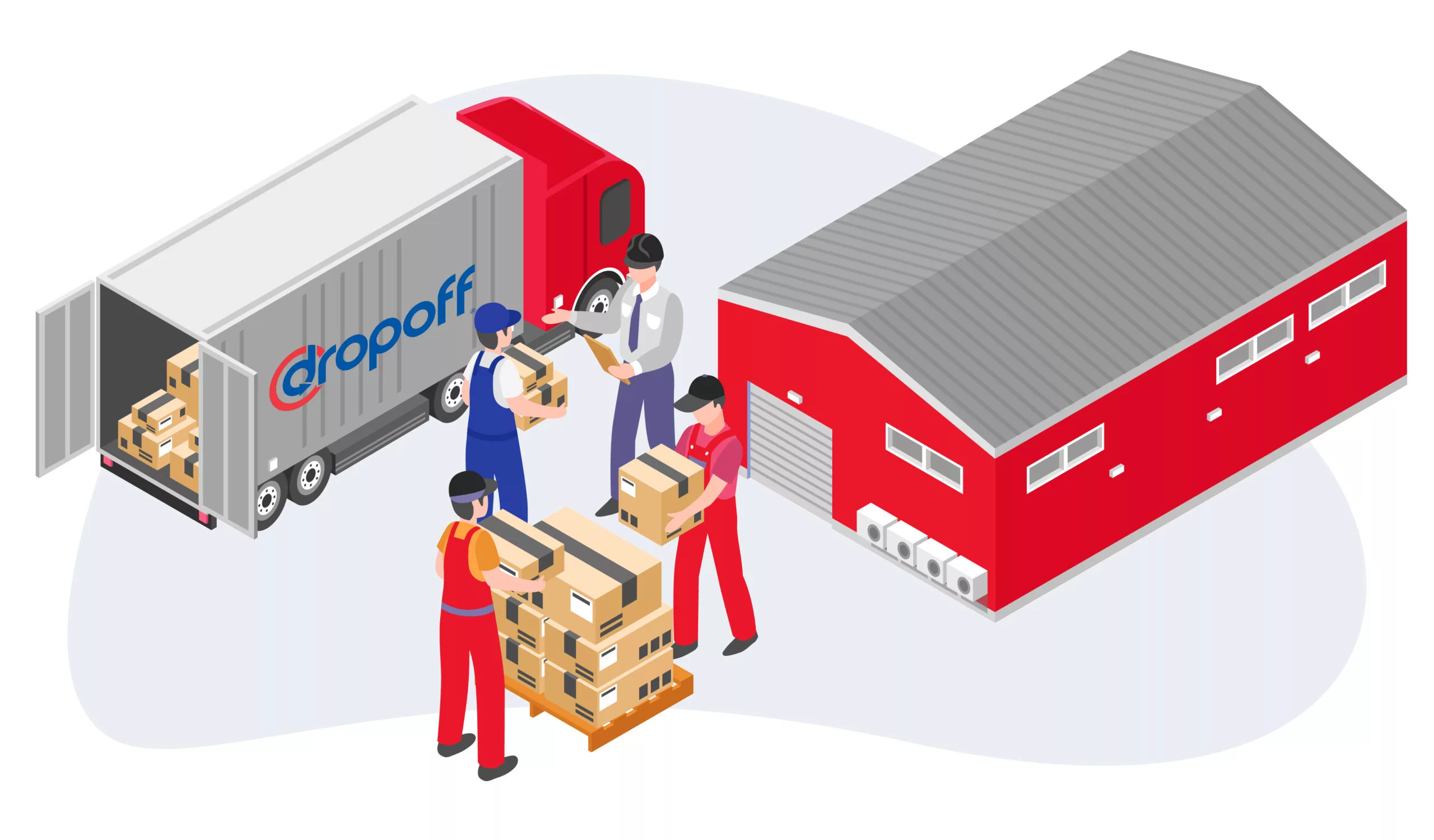B2B Logistics: How to Manage It Successfully
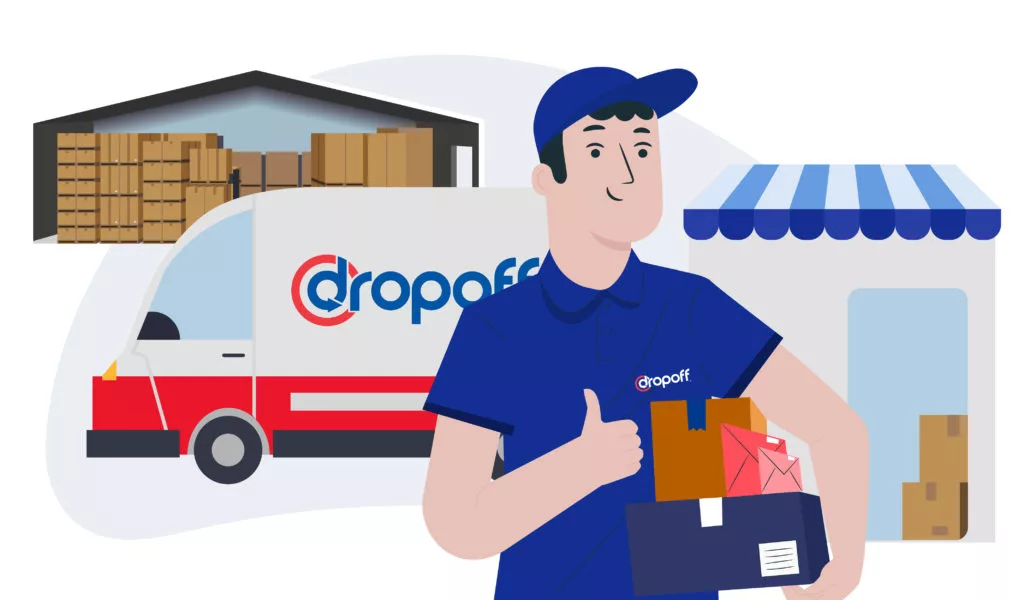
Logistics is a critical aspect of any business, yet it can be difficult to manage successfully. There are many factors to consider, from shipping and delivery to inventory and storage. In this blog post, we’ll explore some tips for managing B2B logistics effectively.
What Is B2B Logistics and Why Is It Important?
The movement of products and services between businesses, on a large scale, is known as B2B logistics. This is a crucial aspect of any business’s success, as it involves many variables such as transportation mode, scheduling, delivery times, costs, packaging, storage options, and more.
It is important to have a clear understanding of all these factors and how they can affect each other.
B2B logistics services require careful planning from start to finish. This includes identifying potential roadblocks or delays early on in order to avoid costly mistakes or missed deadlines down the line. For example, B2B same-day delivery may be vital for some businesses in order to meet customers’ needs or stay competitive in their industry.
The global same-day delivery market size is projected to reach USD 132,380 million by 2026, from USD 7,546.6 million in 2019 (Valuates Reports, 2021).
By working closely with partners across all areas of B2B shipping, businesses can ensure that their shipments are delivered efficiently and cost-effectively at all times. Ultimately, by managing their logistics well, businesses can gain a competitive edge resulting in greater profitability and success over time.
The Difference Between B2B and B2C Logistics
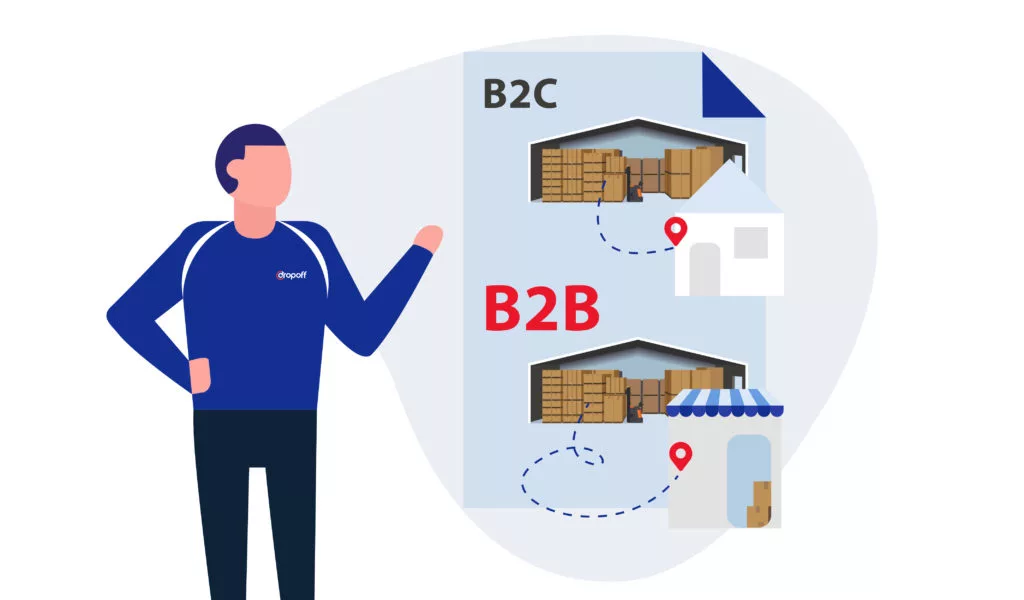
1. Products are priced differently
B2B orders are priced differently than B2C purchases in order to meet the demands and requirements of the end firm. Depending on the size of an order, recurring purchases, payment terms, and duration of the relationship under contract, this may vary considerably.
2. Delivery size and volume
B2B deliveries are typically larger in size and volume than B2C shipments. This is because businesses usually order in bulk quantities, while individual customers tend to purchase smaller amounts.
3. Shipping procedures
Because B2B purchases require larger shipments, the shipping procedures take longer and are more expensive. They also require sophisticated handling equipment for loading and unloading pallets of goods.
4. Lead times
Businesses often place orders for products well in advance. This means that they are willing to pay for expedited shipping. This also means that B2B deliveries have shorter lead times than B2C shipments. The cost and speed of delivery can be impacted by these differences.
5. Travel vehicles
Another distinction to consider is that B2B delivery and courier services is generally done by big trucks or other long-distance vehicles, whereas B2C transportation usually involves smaller cars like vans or even bicycles.
Challenges of B2B Logistics
Here are the challenges facing B2B logistics today.
1. Order management
Perhaps the most significant challenge is managing the delivery of goods to a large number of customers spread out over a wide geographical area. This can be a complex and costly undertaking, particularly for businesses that are just starting out.
In general, order management is important for logistics across all industries, but it is particularly for industries with high-volume orders. For instance, it is essential in retail logistics.
2. Inventory management
Another common challenge is ensuring that orders are fulfilled promptly and accurately. This can be difficult to achieve if businesses do not have a good system in place for tracking inventory levels and managing stock. Any B2B firm should make certain that clients receive their orders on time.
3. Lack of visibility
Customers want to know when their goods will come and where they are in the delivery process. Many B2B deliveries suffer from a lack of clarity for customers. Instead of waiting for the expected date, businesses will wait for updates without any information as the situation evolves.
4. Customer service
When you’re providing goods to a company, don’t cut corners in terms of customer service. A common problem that B2B deliveries have is a lack of customer care throughout the process. Excellent customer service may lead to more repeat business and an improved public image.
5. Delivery expenses
B2B delivery is always difficult, and fuel costs and vehicle maintenance costs are on the rise, which makes running efficient deliveries a top priority for businesses. The shipping process can significantly reduce a company’s earnings.
6. Potential fraud
Finally, when dealing with B2B logistics, businesses must be careful. Fraud can come from a variety of sources along the supply chain. Perhaps someone takes advantage of an upstream disruption or misrecords inventory at the warehouse.
Regardless, all B2B suppliers are constantly subjected to higher levels of multi-level uncertainty.
Solutions to B2B Logistics Challenges
1. Level up delivery route management
Route planning is always a challenge, no matter who you’re delivering to. Optimizing the way routes are planned and managed is one of the simplest and most effective methods to improve B2B deliveries.
The only effective solution is a GPS delivery tracking system. This allows businesses to plan and optimize each route at the top level of efficiency.
2. Improve delivery tracking
A GPS delivery management system allows businesses to keep track of and trace their shipments. This is done clearly and completely accurately, offering a number of advantages for the B2B firm as well as the business receiving the order.
Accurate delivery tracking provides a far better view of the delivery process. Customers can easily follow their delivery and keep themselves up to date. Check out our guide to last-mile delivery courier tracking.
3. Manage delivery costs
One of the most difficult issues that B2B deliveries face is managing delivery costs. To understand delivery costs and how to minimize them, logistics administrators require access to up-to-date data.
They must be able to track the progress of each delivery, understand how much money has been spent, and which steps in the delivery process might be improved to save money. The only way to significantly enhance B2B logistics is to study clear sets of data from past deliveries and identify areas requiring attention.
Basically, managing delivery costs is one of the most important metrics in logistics.
4. Real-time alerts and updates
Businesses may use courier notifications and updates to let their customers know about the last-mile delivery stage. Using the proper transportation management software, companies may send out updates on each order as it occurs. This maintains the client up to speed, resulting in a better customer experience.
How to Manage B2B Logistics Successfully
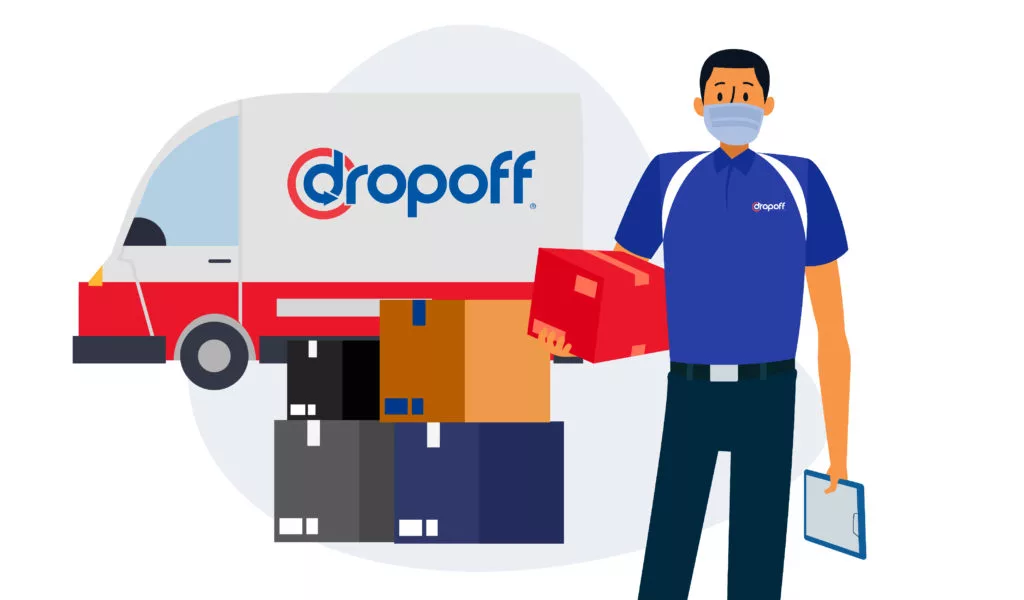
When it comes to B2B logistics, there are a few principles that are essential for an efficient operation.
B2B Delivery
One of the most important is B2B delivery, which involves efficiently packing, transporting, and delivering products from one business to another. This process requires a deep understanding of the specific needs and requirements of both businesses as well as an exceptional level of attention to detail.
Many logistics experts recommend leveraging the predicted volumes to reduce costs during delivery. In order to get the best deals on freight, it is important to know your predicted logistics volumes. Knowing this information can help you negotiate better rates which will help improve your bottom line and give you a competitive advantage.
In addition, start practicing demand-driven logistics if this is not already being done. The significance of matching demand for your items to your supply extends far beyond shipping costs. When a company starts using demand-driven logistics, they are able to save money on transportation costs. However, the real savings come from replacing inventory with information and providing better customer service to customers.
B2B Fulfillment
In addition, B2B fulfillment is another key component of B2B logistics. This involves managing inventories, preparing orders for shipping, and ensuring that all products arrive undamaged and on time.
With B2B fulfillment, it boils down to a ton of organizing.
Start small. Simplify your receiving procedures to speed up the delivery of incoming shipments and the return of defective goods to the manufacturer for replacement. This will save you money on back-orders or delayed deliveries for your customers.
Organize shipments and logistics so that you can deliver items to customers as quickly as possible at the lowest cost. However, plan a backup shipping strategy in case something goes wrong, or carriers unexpectedly raise rates above your profit margins.
To reduce labor costs, increase working conditions, and make operations safer, automate as much as you can.
Overall, these two core principles form the backbone of any successful B2B logistics operation, providing the foundation upon which all other aspects are built.
Why Businesses Benefit from Same Day Delivery
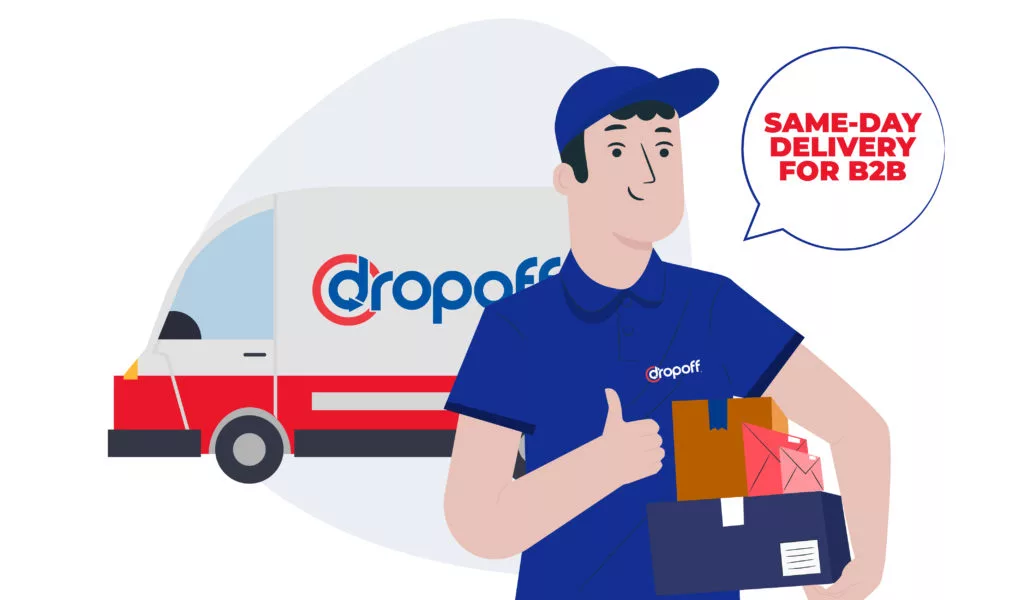
Many businesses today are looking for ways to improve their efficiency and speed up their delivery times. One option that has become increasingly popular is B2B same-day delivery.
This type of delivery allows businesses to send products to their customers on the same day that the products are ordered. There are several benefits that businesses can enjoy by offering B2B same-day delivery.
First, it can help to reduce shipping costs. Second, it can improve customer satisfaction by providing prompt service (McKinsey, 2014). Finally, B2B same-day delivery can also help businesses to build a competitive advantage by offering a unique service that their competitors may not be able to match.
B2B same-day delivery has become an attractive option for many businesses as the demand for convenience & speed only increases.
How will the ever-changing landscape of global trade impact B2B logistics and how should businesses prepare themselves for these changes?
The landscape of global trade is changing rapidly, and this evolution is having a major impact on B2B logistics. As new players enter the international marketplace and customers become more price-conscious, businesses will need to rethink their strategies for B2B delivery and fulfillment.
For example, many smaller firms that lack a large network of warehouses may need to consider partnering with third-party logistics (3PL) companies. This would allow them to leverage the resources of a larger company while still maintaining control over their own B2B logistics operations.
Additionally, businesses may need to focus more on maintaining efficient processes for B2B fulfillment, such as streamlining procurement and improving collaboration between departments.
Overall, the key to success in B2B logistics will be flexibility and an ability to adapt quickly in response to shifting market forces.
A List of B2B Delivery Companies

Some of the most well-known B2B delivery companies include UPS, FedEx, and Dropoff. They offer a number of different delivery options, including next-day courier service, ground transportation, and even same-day delivery in some cases. The following list shows US-based B2B last-mile delivery companies worth mentioning.
- UPS – UPS has a great range of shipping options including time-sensitive deliveries and excellent tracking capabilities.
- FedEx – FedEx is one of the major players in the B2B space. It has excellent worldwide coverage and is more negotiable with pricing when it comes to high-volume deliveries.
- Dropoff – Dropoff has dominated the same-day delivery area, providing reliability for a variety of industries, including healthcare and business services.
- XPO – The quality of their technology is one of the reasons why many businesses and manufacturers choose XPO as their logistics provider.
- USPS – USPS delivers across the country on a regular basis, it excels at getting things to those remote locations.
- ShipHawk – With ShipHawk, customers never have to lift a finger. It does all the heavy lifting of obtaining up-to-date tracking information, haggling prices, and dealing with shipping partners.
Summary
Managing B2B logistics is a challenge that requires careful planning and execution. However, with the right tools and resources in place, businesses can reap significant benefits from same-day delivery and prepare themselves for the changes in global trade.
If you’re looking for help managing your company’s logistics talk to a Dropoff expert today to learn more about our services and how we can help streamline your delivery program.

